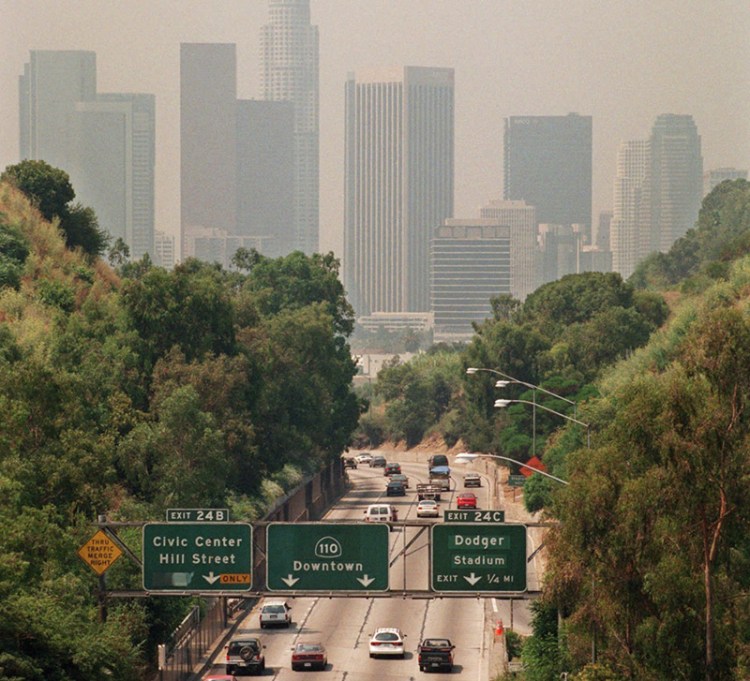WASHINGTON – The Trump administration on Thursday announced plans to freeze fuel efficiency requirements for the nation’s cars and trucks through 2026 while moving to undercut the ability of states – including Maine – to set their own tailpipe emissions restrictions.
The changes are considered massive regulatory rollbacks of Obama administration policies that argued requiring more fuel efficient vehicles would improve public health, combat climate change and save consumers money without compromising safety. The Trump administration move is expected to spur a legal battle with California and other states, as well as create potential upheaval in the nation’s automotive market.
Environmental groups in Maine, which is among the states that adopted California’s tougher emissions requirements for new cars, and around the country quickly denounced the widely anticipated move.
The Natural Resources Council of Maine said the changes will result in more harmful pollutants drifting into Maine – which already has among the nation’s highest asthma rates – and “adds insult to injury by also eliminating states’ rights to set our own clean car standards.”
“For more than a decade, Maine and the other states have used our rights under the Clean Air Act to limit tailpipe pollution beyond federal minimum requirements,” Emmie Theberge, federal project director at NRCM, said in a statement. “Maine wants cleaner cars nationwide because upwind pollution matters so much to us, so we’ve done our part by using the best clean car standards available. This proposed rollback puts all that at risk.”
The proposal argues that forcing automakers to reach a fleet-wide average of 51.4 miles per gallon by 2025, as the Obama administration required, would make vehicles more expensive and encourage people to stick to driving older, less-safe cars and trucks. The administration estimates that halting more ambitious fuel efficiency targets would save Americans thousands of dollars on every new vehicle purchased and avoid 1,000 road deaths a year.
Public health experts and environmental groups condemned the White House proposal even before its official release, arguing that it overlooks how much money Americans would save at the pump if cars were more efficient and also squanders a chance to cut pollution from the transportation sector, which has become the nation’s largest source of carbon dioxide emissions.
“By 2030, the pollution equivalent of this rollback will be like firing up 30 coal power plants,” Paul Cort, an attorney at the advocacy group Earthjustice, said in a statement. “It’s a boon for big oil that ordinary Americans will pay for with their health and their wallets.”
Representatives of the U.S. auto industry praised the administration’s proposal, even as some automakers privately have expressed unease at the prospect of abrupt changes in fuel standards and having to meet different standards in different states.
“Automakers support continued improvements in fuel economy and flexibilities that incentivize advanced technologies while balancing priorities like affordability, safety, jobs, and the environment,” Gloria Bergquist, spokeswoman for the Alliance of Automobile Manufacturers, said in a statement. “We urge California and the federal government to find a common sense solution that sets continued increases in vehicle efficiency standards while also meeting the needs of America’s drivers.”
Portland Press Herald staff writer Kevin Miller contributed to this report.
Send questions/comments to the editors.


